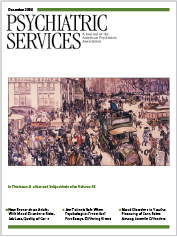White Hot
I will preface this review with the caveat that I had never read a novel by Sandra Brown. White Hot is a romance mystery set in the small Louisiana town of Destiny. The book begins with the lines, "Some said that if he was going to kill himself, he couldn't have picked a better day for it. Life was hardly worth living that particular Sunday afternoon, and most organisms were doing a half-assed job of it."
From this beginning the story unfolds around the Hoyle family, who run an iron foundry, the main industry in town. The patriarch of the family, Huff Hoyle, is introduced to us after he returns from a hot day during which he planned to play golf but ended up playing cards at the country club. He is described as striding in and telling his son, Chris, to, "Get me one of those longnecks. I'm so damn thirsty, I couldn't work up a spit if my dick was on fire." He is the coarse, domineering, and controlling father of three children. He also runs his iron foundry with a firm and at times brutal hand, with disregard for safety regulations. His oldest son, Chris, is his pride and joy. Huff's daughter and second child, Sayre, left the family. We find later that years ago Huff ruined her plans to marry her high school love, forced an abortion on her, and then had her marry a rich old crony.
Understandably, she decided to leave. Since then she has found her calling doing interior design for the elite of San Francisco. Huff's youngest son, Danny, is more emotional and apparently kills himself at the start of the novel. Danny's apparent suicide sets the stage for Sayre to return, with a guilty conscience, because she did not return two telephone calls Danny recently made to her. Soon it appears that Danny may in fact have been murdered, and that Chris is a suspect. Sayre decides to stay and is embroiled in a love-hate relationship with the Hoyle family attorney, Beck Merchant.
Unfortunately I found the characters too flat, and I could not get interested in them. I found Sayre to be temperamental and annoying, whereas the author wanted to portray her as having a smoldering passionate side. Having roots in the South myself, I have enjoyed Southern literature. However, I found that the novel did not evoke a real sense of the South and that the plot could have been transplanted to any small town by changing a few props. The main plot twists came late, and I felt they were sprung on the reader.
The promotional literature accompanying the novel had a list of proposed questions for an interviewer to ask Ms. Brown. One questions is, "You've described White Hot as 'more of a potboiler' than your previous novels—how so?" This seems an apt question. The novel was readable, although I do not feel that I learned anything new or interesting about human nature, behavior, or psychology.
Dr. Turpin is affiliated with the department of psychiatry of the University of Massachusetts Medical School in Worcester.



